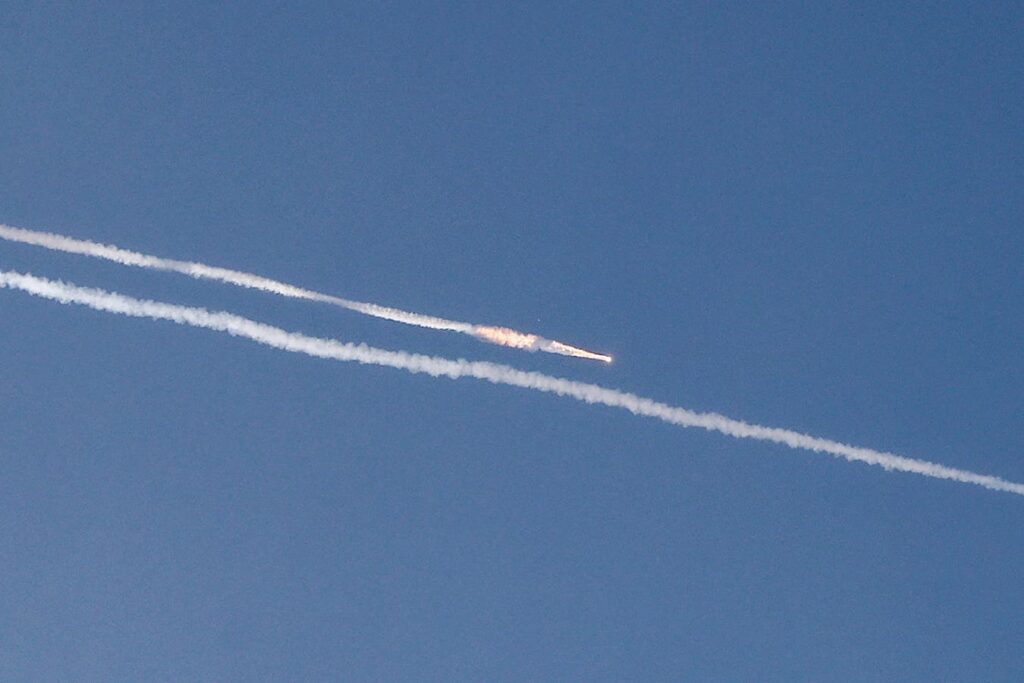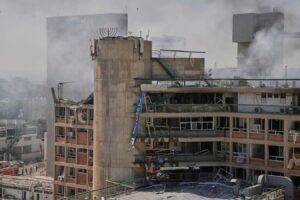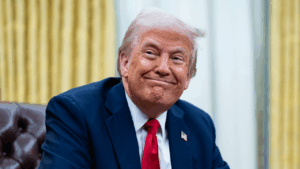
Rocket trails were visible in the sky above the Israeli coastal city of Netanya early Tuesday, marking the latest chapter in the escalating conflict between Israel and Iran. President Donald Trump announced that a ceasefire between the two nations had been brokered, a claim confirmed by both Israeli and Iranian officials. This development concludes nearly two weeks of hostilities that saw U.S. airstrikes on Tehran’s nuclear facilities.
However, the situation remains volatile. The Israeli Defense Forces (IDF) accused Iran of violating the ceasefire shortly after its announcement, citing new missile attacks on northern Israel. In response, Israel’s Defense Minister, Israel Katz, declared that the IDF would “respond forcefully” to any breaches, targeting regime sites in Tehran.
Ceasefire Confirmations and Violations
Despite the ceasefire announcement, tensions remain high. According to the Times of Israel, Prime Minister Benjamin Netanyahu’s office stated that Israel had achieved its objectives in “Operation Rising Lion,” which aimed to eliminate immediate threats in nuclear and ballistic missile domains. The statement expressed gratitude to President Trump for his support and confirmed Israel’s agreement to the U.S.-brokered ceasefire.
Meanwhile, Iranian state media reported that a ceasefire had been “imposed” on Israel following successful missile attacks. Iran’s Foreign Minister Abbas Araghchi commented on social media, indicating that no formal agreement had been reached, but suggested that Iran would halt its response if Israel ceased its aggression by a specified time.
U.S. and International Reactions
Trump took to his Truth Social platform to emphasize the ceasefire’s implementation, urging both nations to maintain peace. He downplayed the damage from recent exchanges, noting that most Iranian missiles were intercepted. Trump’s posts reflected optimism, stating, “CONGRATULATIONS WORLD, IT’S TIME FOR PEACE!”
However, the situation has drawn international attention and concern. The U.S. Department of Defense confirmed that Al Udeid Air Force Base in Qatar was targeted by Iranian missiles, although no casualties were reported. Bahrain, hosting the U.S. Navy’s 5th Fleet, closed its airspace as a precaution, advising citizens to avoid main roads.
“The maritime threat level remains ELEVATED,” warned the U.S. Navy-led Joint Maritime Information Center, highlighting the ongoing regional tensions.
Global Diplomatic Dynamics
In Moscow, Russian President Vladimir Putin condemned the U.S. strikes on Iran’s nuclear sites as “unprovoked aggression.” This marked a shift from Russia’s earlier muted response, reflecting its strategic interests in the region. Putin pledged support for Iran, though specifics remain unclear.
At the International Atomic Energy Agency, Director General Rafael Grossi reported significant damage to Iran’s Fordow nuclear site due to U.S. strikes, though Iran assured no radiation leaks occurred. China’s foreign ministry criticized the U.S. actions, warning of escalating tensions and urging an immediate ceasefire.
Iranian officials, including Major General Amir Hatami, vowed a decisive response to U.S. actions, accusing America of “committing crimes” against Iran. Hatami’s rhetoric underscored the potential for further conflict, despite diplomatic efforts to de-escalate.
Implications and Future Prospects
As the ceasefire’s status remains uncertain, the international community watches closely. The conflict underscores the fragile balance in the Middle East, where geopolitical interests and historical animosities intersect. The U.S. administration, while asserting its actions were not aimed at regime change, faces scrutiny over its unilateral military decisions.
Vice President JD Vance emphasized that the U.S. targets Iran’s nuclear capabilities, not its government, reflecting a nuanced stance amidst domestic and international criticism. Defense Secretary Pete Hegseth described the operation as a “precision strike,” reinforcing the administration’s commitment to national security without further entanglement.
As diplomatic channels remain open, the world awaits the next steps from Israel, Iran, and the U.S., hoping for a sustainable resolution to a conflict that has long threatened regional stability.







